Politics
Hungary drops veto and agrees to prolong EU sanctions on Russian individuals
Published
1 month agoon
By
Ekwutos Blog
Hungary has agreed to drop its veto and allow the renewal of the sanctions that the European Union has imposed on more than 2,400 individuals and entities, mainly from Russia, in response to the full-scale invasion of Ukraine.
The resolution happened on Friday, less than 48 hours before the measures were set to expire, a risky deadlock that had put the bloc in a situation of extraordinary suspense.
Sanctions have to be renewed every six months by unanimity, meaning one member state can single-handedly derail the entire process.
Hungary’s veto was confirmed several times this week in meetings between ambassadors, with unsuccessful attempts on Monday, Wednesday and, most recently, Thursday afternoon. Each failure sent the clock ticking on.
Budapest demanded several names be removed from the blacklist, several diplomats told Euronews. The names were not made public, but Radio Free Europe previously reported the identity of seven oligarchs, including Mikhail Fridman and Dmitry Mazepin, and Russia’s sports minister as part of the request.
Following intense discussions behind the scenes, a compromise was eventually reached to release four names rather than the eight Hungary wanted. Additionally, three individuals who are dead were excluded.
As a result, the prolongation for another six months was approved on Friday morning. The sanctions were set to expire by midnight on Saturday.
The saga marks the second time in three months that Viktor Orbán’s government has put Brussels on edge by threatening to undo the sanctions regime that the bloc has painstakingly built since February 2022.
In January, it took exception to sectoral sections, which cover sweeping bans on oil, coal, technology, finance, luxury goods, transport and broadcasting, and the freezing of €210 billion in assets from Russia’s Central Bank.
Budapest relented after obtaining a non-binding statement on energy security.
This time, it set its sights on the blacklist that includes hundreds of military commanders, government officials, oligarchs, propagandists and Wagner Group mercenaries, all of whom are subject to an asset freeze and a travel ban.
President Vladimir Putin and his foreign minister, Sergey Lavrov, are designated.
The blacklist also targets hundreds of Russian companies in the military, banking, transport, energy, diamond, aviation, IT, telecoms and media sectors.
Hungary argues that Donald Trump’s inauguration as US president and his efforts to strike a peace deal merit a rethink of EU support for Ukraine and EU sanctions on Russia.
The stance is not shared by other member states, who believe pressure on Moscow should continue for the duration of the war. They also want to pursue a “peace through strength” strategy to reinforce Ukraine’s standing in the negotiations and establish the country’s armed forces as an effective, long-lasting security guarantee.
Orbán disagrees with the “peace through strength” mantra and last week prevented the adoption of joint conclusions on Ukraine at the end of a special EU summit, forcing his fellow leaders to release an attached “extract” signed off by 26.
“Hungary has a different strategic approach on Ukraine,” said António Costa, the president of the European Council. “That means that Hungary is isolated among the 27. We respect Hungary’s position, but it’s one out of 27. And 26 are more than one.”
Leaving the summit, Orbán replied: “The European Union has isolated itself from the US, isolated itself from China because of the trade war, and isolated itself from Russia because of the sanction policy. So if someone is isolated here, it’s the European Union.”
The stark political divergence played out during the talks among ambassadors, with Hungary managing to block the roll-over on at least three separate occasions this week.
The veto happened the same week that US and Ukrainian officials announced significant progress in their negotiations, easing tensions between both sides.
Ukraine said it was ready to implement an interim 30-day ceasefire provided Russia reciprocated, while the US agreed to immediately lift the suspension on military assistance and intelligence-sharing with Kyiv, which caused consternation in Brussels.
“Ball is in Russia’s court,” said US Secretary of State Marco Rubio.
In response, Vladimir Putin said he was in favour of the proposal but asked for certain “nuances” to be clarified before committing himself. Putin heavily implied that Ukraine should stop receiving Western weaponry for the duration of the ceasefire.
The European Commission has confirmed that it is already working on a 17th package of sanctions against Russia.

You may like
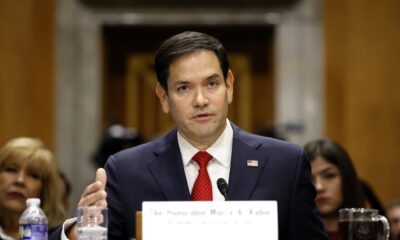

Some African countries developing, others in chaos – Rubio


Air Peace set to resume flight operations
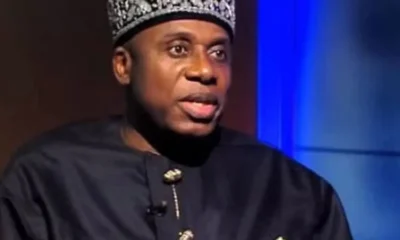

Rivers: Tinubu broke Nigeria’s constitution, National Assembly very weak – Amaechi


Uber, Bolt drivers threaten strike over excessive commission charges in Rivers


Sokoto to begin 2025 Hajj airlift on May 9 — Pilgrims agency


TRACE denies involvement in death of Ogun motorcyclist
Politics
Some African countries developing, others in chaos – Rubio
Published
8 hours agoon
April 25, 2025By
Ekwutos Blog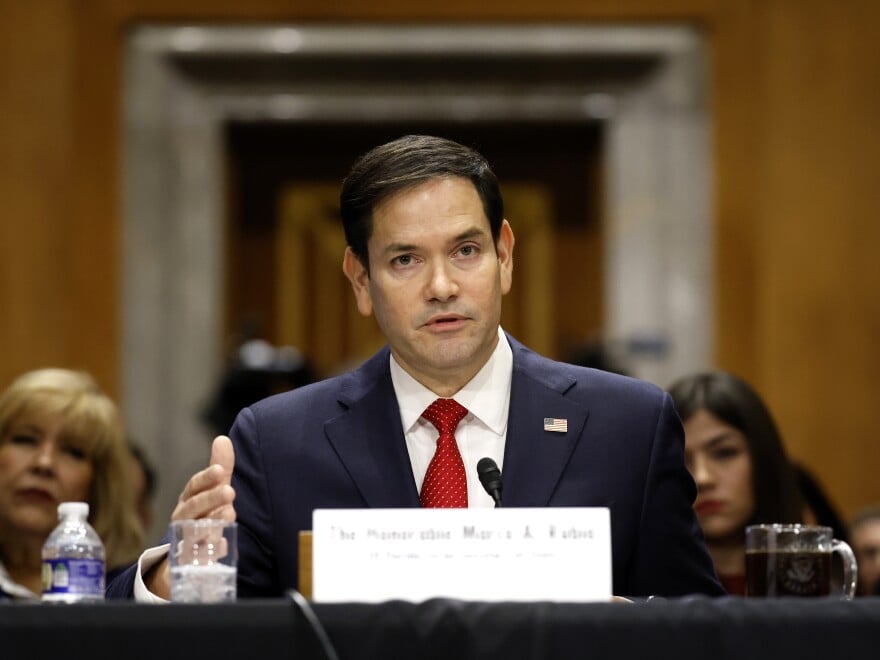
U.S. Secretary of State Marco Rubio said countries in Africa are going in two directions, with some developing economically while others are falling into chaos.
The American diplomat, in an interview with Bari Weiss Podcast, responded to a question on the United States’ interest in foreign nations — stability or democracy.
Rubio explained that the United States now operates according to the dynamics in each region as current situations differ from what existed in previous decades.
The Secretary of State said 20 years ago, the U.S. was “a unipolar power” and was usually called in to do things because nobody else could or would.
“We don’t live in that world anymore,” he stated. “We now live in a world with a near peer adversary in China.”
“We live in a world where, while Russia’s economy is not large, they have the ability to project power and destabilize.”
Rubio said the world now witnesses a nuclear-armed North Korea, a nuclear-ambitious Iran, and a Middle East with both opportunities and real challenges.
The Secretary revealed that the U.S. national interest in the Middle East is stability, and preventing groups that would attack Americans from taking root.
In Central America, U.S. national interest is migration, drugs, with the hope that countries are prosperous so people don’t migrate and join drug cartels.
“We have to have foreign policies in different parts of the world, and we have to have the regions and the embassies run it,” Rubio noted.
The senior official added that Washington no longer applies the same standard across the board, adding: “That’s not realistic foreign policy in today’s world.”
Politics
Rivers: Tinubu broke Nigeria’s constitution, National Assembly very weak – Amaechi
Published
8 hours agoon
April 25, 2025By
Ekwutos Blog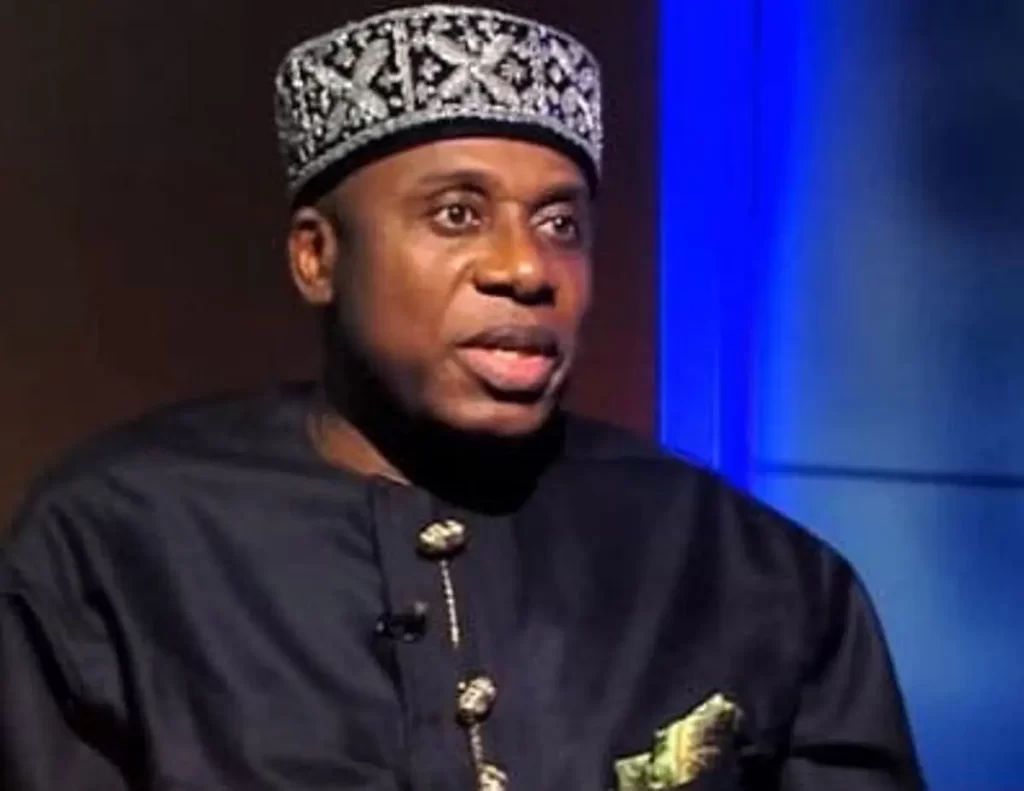
Former Minister of Transportation, Rotimi Amaechi, has insisted that President Bola Tinubu broke Nigeria’s constitution by removing Governor Siminalayi Fubara and declaring a state of emergency in Rivers State.
Amaechi also expressed disappointment over the ineffectiveness of the National Assembly in the matter, describing the Red Chamber as a very weak institution that aided Tinubu in instituting an illegal government.
The former Rivers State governor spoke at the 9th Edition of Akinjide Adeosun Foundation, AAF, Annual Leadership Discourse themed: “Fearless Leadership: A Panacea for Sustainable Development,” organised by AAF yesterday in Lagos.
Amaechi said: “For a governor or a president, who subscribes to such a concept, it is what he or she does that is law. It is not what is in the book that is law. There is also the non-observance of the basic principles of law.
“This is where government is not by law, but by the whims and caprices of an individual leader. Like the current pronouncement of an illegal and unconstitutional state of emergency in Rivers State aided by weak institutions like the National Assembly, which is very weak.
“What is even more alarming is that the breach in the situation is not even about law. The president didn’t break any law. He broke the constitution.
“Now, this breach of the constitution is a breach of the sacredness and sanctity of the constitution. The constitution of a country is the Bible of that country. And its sanctity must be protected.
“Can we say the same in Nigeria? Obviously, the response would be a resounding no. The president looked at the whole Nigeria and removed an elected governor in Rivers State and appointed a military man, yet the country continued. Nothing happened,” he lamented.
Ekwutosblog reports that Tinubu had a few weeks ago declared a state of emergency in Rivers State following the prolonged political crisis in the south-south state.
The president also suspended Fubara, his deputy, and the members of the state assembly.
He later nominated Ibok-Eke Ibas as the administrator of Rivers State.
Politics
JUST IN: Nigerian born and Australian Politician Bola Oluseye Olatunbosun has been preselected under the Liberal Party of Australia to run in the Federal Elections for a seat in the Australian Parliament.
Published
9 hours agoon
April 25, 2025By
Ekwutos Blog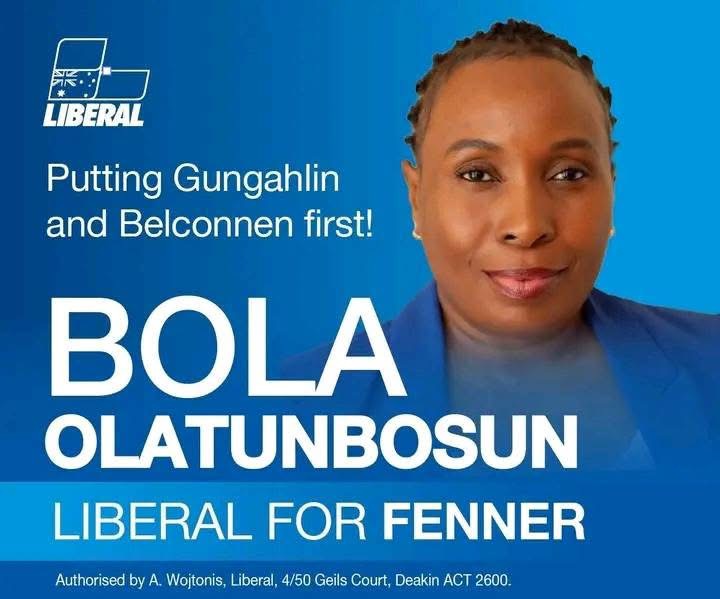
Nigerian born and Australian Politician Bola Oluseye Olatunbosun has been preselected under the Liberal Party of Australia to run in the Federal Elections for a seat in the Australian Parliament.
If she wins, she will be the first Nigerian to be elected to the Federal Parliament in Australia
Report shows that her husband is one of the Resident Pastors of Winners Chapel in Australia.
NIGERIANS are really doing wonders in diaspora
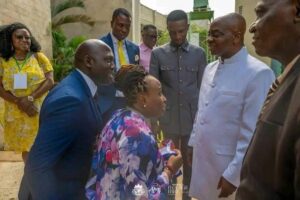

Some African countries developing, others in chaos – Rubio

Air Peace set to resume flight operations

Rivers: Tinubu broke Nigeria’s constitution, National Assembly very weak – Amaechi
Trending

 Trending6 months ago
Trending6 months agoNYA demands release of ‘abducted’ Imo chairman, preaches good governance
- Business6 months ago
US court acquits Air Peace boss, slams Mayfield $4000 fine

 Politics6 months ago
Politics6 months agoMexico’s new president causes concern just weeks before the US elections
- Entertainment6 months ago
Bobrisky transferred from Immigration to FCID, spends night behind bars
- Entertainment6 months ago
Bobrisky falls ill in police custody, rushed to hospital

 Politics6 months ago
Politics6 months agoRussia bans imports of agro-products from Kazakhstan after refusal to join BRICS

 Politics6 months ago
Politics6 months agoPutin invites 20 world leaders
- Politics1 year ago
Nigerian Senate passes Bill seeking the establishment of the South East Development Commission.
